How to Stop Hair Loss: Treatments & Natural Remedies
In this guide, we look at the best ways to stop hair loss immediately with help from science and experts.
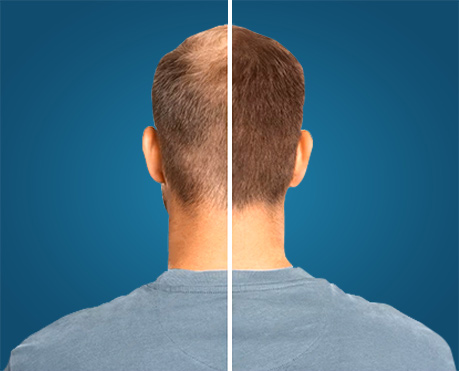
Hair loss is a common issue that affects millions of people worldwide, causing physical and emotional distress. Understanding the root causes and implementing effective treatments can significantly reduce hair loss and improve hair growth.
In this guide, we look at the best ways for how can i stop hair loss naturally with help from science and experts.
Understanding the Causes of Hair Loss
Various factors can cause hair loss or dandruff. Identifying the cause is important to determine the most effective treatment. The main reasons and type of hair loss are:
Genetic factors
Congenital alopecia, also called androgenetic alopecia, is the top reason for hair loss in men and women. Symptoms include hair thinning that starts at the jawline or crown of the head based on family history.
Hormonal Changes
Hormonal fluctuations can have a profound effect on hair growth. Conditions such as pregnancy, menstruation, thyroid disorders and polycystic ovary syndrome (PCOS) can cause temporary or permanent hair loss or female pattern hair loss.
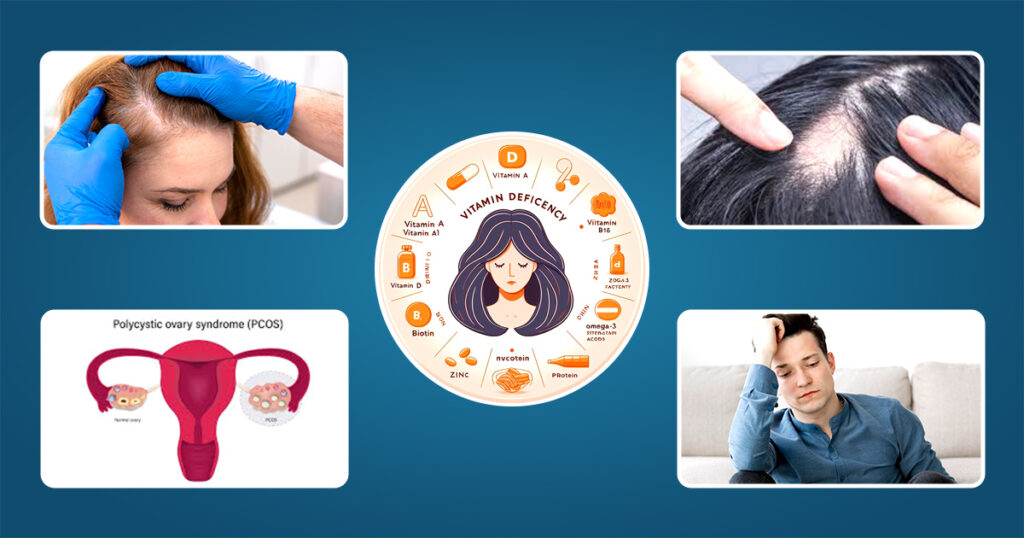
Medical conditions and Medications
Certain medical conditions, including autoimmune diseases such as alopecia areata, can cause hair loss. Additionally, hair loss can occur as a side effects of medications for cancer, arthritis, depression and heart disease.
Nutritional Deficiencies
A lack of essential nutrients such as iron, zinc and vitamin Deficiency A and D can lead to thinning hair. A balanced diet is essential for healthy hair.
Stress and Lifestyle Factors
Chronic stress, poor sleep, and an unhealthy lifestyle weaken hair follicles and can lead to hair loss. Addressing these factors is important to prevent further hair loss.
Effective Strategies to Stop Hair Loss
Stopping hair loss requires a multifaceted approach that includes lifestyle changes, nutritional support, medical treatments, and proper hair care. Here are the most effective strategies:
1. Nutritional Support
A balanced diet with essential vitamins and minerals is essential for hair health. Key nutrients that boost hair growth include:
- Biotin: Found in eggs, nuts and whole grains, biotin strengthens hair and stimulates growth.
- Vitamin D: Exposure to sunlight and foods such as fatty fish and fortified milk can help maintain hair follicles.
- Iron: Red meat, green vegetables and fruits are good sources of iron to prevent hair loss from anemia.
- Zinc: Found in oysters, beef and shellfish seeds, it helps with hair repair and growth.
2. Stress Management
Chronic stress can disturb the hair growth cycle and cause hair loss. Effective ways to manage stress of hair loss include:
- Exercise regularly: Exercise reduces stress hormones and improves overall well-being.
- Mindfulness and meditation: Practices like yoga and meditation can calm the mind and reduce stress.
- Adequate Sleep: Ensuring a good 7-8 hours of sleep per night is important for hair health.
3. Proper Hair Care
Taking care of your hair and scalp prevents further hair loss and promotes growth. Top hair care tips are:
- Wash hair gently: Use a mild shampoo and conditioner that suits your hair type. Avoid excessive scrubbing, which can strip the natural oils.
- Avoid heat and hair treatments: Reduce the use of heating tools and harsh chemicals that can damage hair.
- Hair massages: Regular scalp massages increasing hair blood flow to the scalp, promoting growth.
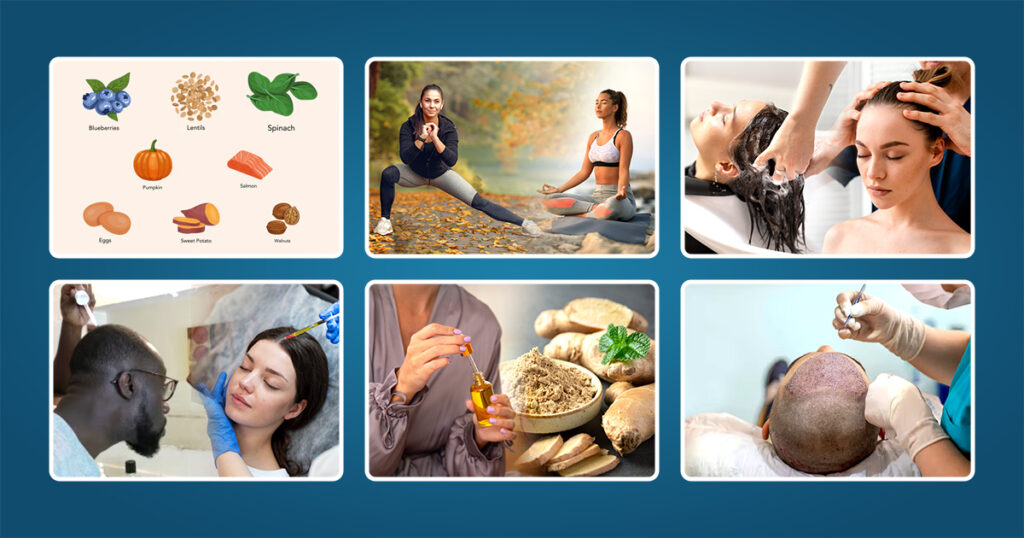
4. Medical Treatments and Therapies
Medical treatment and therapy may be necessary for severe hair loss. Some effective hair loss treatment options are:
- Minoxidil (Rogaine): An over-the-counter topical medication that promotes hair growth and slows down hair loss.
- Finasteride (Propecia): A drug prescribed for men that reduces hair loss by blocking the DHT hormone.
- Low Level Laser Therapy (LLLT): A non-invasive treatment that uses red light for hair growth.
- Platelet-Rich Plasma (PRP) Therapy: A treatment where the patient’s own platelet-rich plasma is injected into the scalp to help hair grow.
5. Alternative and Natural Remedies
In addition to treatment, several natural remedies can support scalp health and reduce hair fall:
- Essential oils: Rosemary oil, peppermint and lavender can be applied to the scalp to stimulating hair growth.
- Herbal supplements: Some herbs like saw palmetto, ginseng, and green tea may help hair grow.
- Aloe Vera: Known for its soothing properties, aloe vera can reduce scalp irritation and promote healthy hair.
6. Hair Transplant Surgery
For those with advanced hair loss, hair transplant surgery may be an effective option. This procedure involves moving hair follicles from one part of the body to areas where hair is thinning or balding. It provides a permanent solution for hair loss.
Top 5 Natural Remedies to Stop Hair Fall
Hair fall can be a distressing problem, affecting both men and women of all ages. Many treatments available to choose from. In this article, we will explore five effective natural remedies to help losing your hair fall and promote healthy hair growth.
1. Aloe Vera: The Miracle Plant
Aloe vera is renowned for its numerous health benefits, particularly for skin and hair. This succulent plant contains enzymes that directly promote healthy hair growth.
Benefits of Aloe Vera for Hair:
Enzymatic Activity: Aloe vera contains proteolytic enzymes which repair dead skin cells on the scalp.
pH Balance: It helps to maintain the pH balance of the scalp, ensuring optimal hair growth conditions.
Anti-Inflammatory Properties: Aloe vera’s anti-inflammatory properties can reduce scalp irritation and prevent hair loss.
How to Use Aloe Vera:
Aloe Vera Gel: Extract fresh aloe vera gel from the plant and apply it directly to the scalp. Leave it on for about 30 minutes before rinsing with lukewarm water.
Aloe Vera Shampoo: Use a natural shampoo containing aloe vera to cleanse your hair regularly.
2. Coconut Oil: The Traditional One
Coconut oil has been used for centuries in various cultures to promote hair health. Its unique composition makes it highly beneficial for preventing hair fall and encouraging growth.
Benefits of Coconut Oil for Hair:
Nourishment: Rich in fatty acids, coconut oil nourishes the scalp and hair, providing essential nutrients.
Moisturization: It penetrates the hair shaft, moisturizing and preventing breakage.
Antimicrobial Properties: Coconut oil has antimicrobial properties that protect the scalp from infections that could lead to hair loss.
How to Use Coconut Oil:
Hot Oil Treatment: Warm some coconut oil and gently massage it into your scalp. Leave it on for a few hours or overnight before washing it out with a mild shampoo.
Hair Mask: Mix coconut oil with other natural ingredients like honey or yogurt to create a nourishing hair mask.
3. Onion Juice:
Onion juice is a powerful natural remedy for hair fall. Rich in sulfur, which is essential for the production of collagen and can improve hair strength.
Benefits of Onion Juice for Hair:
Sulfur Content: High sulfur content boosts collagen production, vital for hair growth.
Antibacterial Properties: Onion juice’s antibacterial properties help combat scalp infections.
Antioxidants: It is packed with antioxidants that fight free radicals, preventing hair damage.
How to Use Onion Juice:
Direct Application: Extract the juice from an onion and apply it directly to the scalp. Leave it on for 30-45 minutes before washing with a mild shampoo.
Onion Hair Masks: Combine onion juice with honey or olive oil for added benefits and apply to the scalp.
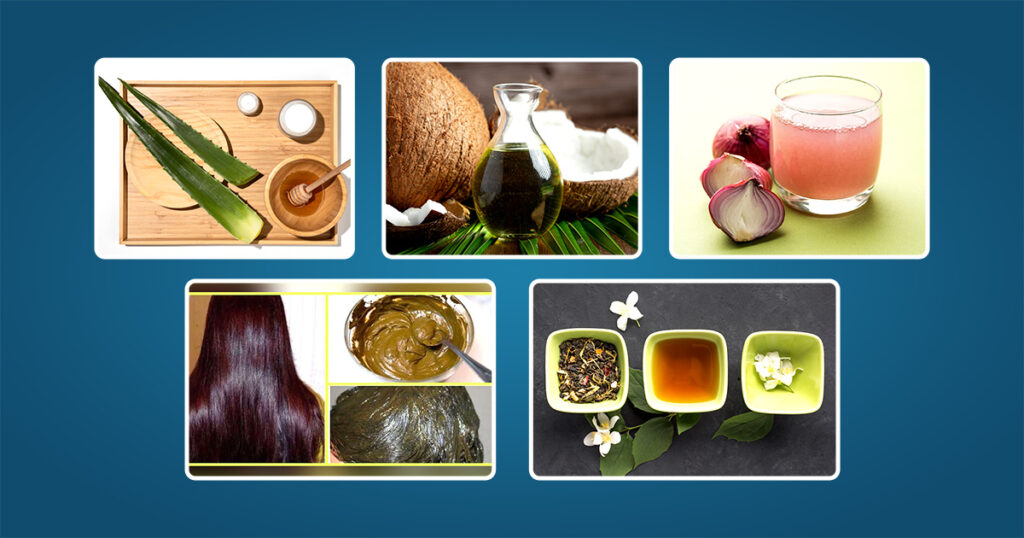
4. Henna: The Natural Conditioner
Henna has been used traditionally not only as a natural hair dye but also as a potent conditioner. It strengthens hair and reduces hair fall effectively.
Benefits of Henna for Hair:
Strengthening Properties: Henna strengthens the hair shaft, preventing breakage and split ends.
Cooling Effect: It provides a cooling effect, soothing the scalp and reducing inflammation.
Natural Coloring: Henna naturally colors the hair, reducing the need for chemical dyes that can damage hair.
How to Use Henna:
Henna Paste: Prepare a paste by mixing henna powder with water or tea. Apply it to the hair and scalp, leaving it on for a few hours before rinsing.
Henna Oil: Infuse henna leaves in oil and use it to massage the scalp for additional nourishment.
5. Green Tea: The Antioxidant Powerhouse
Green tea is not just a healthy beverage but also a powerful natural remedy for hair fall. Its high antioxidant content is beneficial for overall hair health.
Benefits of Green Tea for Hair:
Antioxidants: Rich in catechins, green tea fights free radicals and reduces hair loss.
Anti-DHT Properties: Green tea can inhibit the formation of DHT, a hormone linked to hair loss.
Scalp Health: It improves blood circulation to the scalp, promoting hair growth.
How to Use Green Tea:
Green Tea Rinse: Brew a strong cup of green tea and let it cool. Use it as a final rinse after shampooing your hair.
Green tea mask: Mix green tea with aloe vera or honey for a nourishing hair treatment.
Preventing future hair loss
To stop hair loss, live healthy, reduce stress, and use proper hair products. Regular visits to a doctor can find and treat health issues that might be causing hair loss.
Routine scalp health checks
Seeing a dermatologist or trichologist regularly can help check the health of your scalp and catch hair loss early. These specialists can provide personalized advice and treatment based on your specific needs.
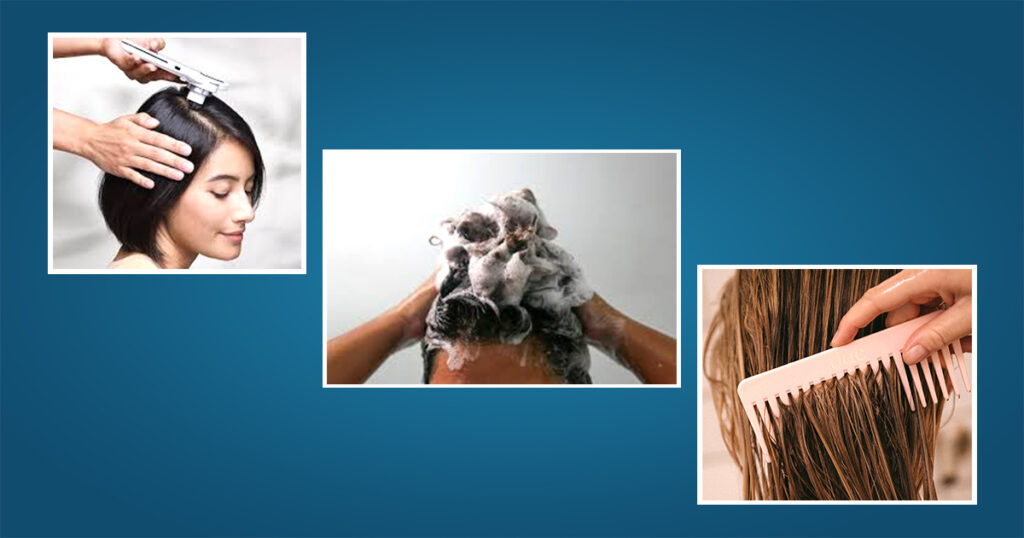
Healthy hair habits
To prevent hair loss in the future, it’s important to have good hair habits. This includes avoiding heavy hairstyles, protecting your hair from sun damage, and using gentle, sulfate-free conditioners.
Psychological rehabilitation practices
Use a wide-tooth comb on wet hair and avoid excessive shaving to prevent breakage and hair loss. These simple tips can help.
Conclusion
Losing hair can be tough, but you can stop and even reverse the process with the right approach. To promote healthy hair growth and prevent further loss, address the root cause. You can do this by using a mix of nutrition, stress management, hair care, and therapy.
The diagnosis of regular and quality hair care is essential for a perfect and healthy head of hair
FAQ’s
Yes, a balanced diet rich in vitamins and minerals such as iron, zinc, vitamin D, and biotin can help maintain healthy hair and potentially reduce hair loss.
Yes, stress can lead to a type of hair loss called telogen effluvium, where hair follicles prematurely enter the resting phase, causing hair to fall out more easily.
Effective treatments for hair loss include medications like minoxidil and finasteride, hair transplant surgery, and low-level laser therapy.

